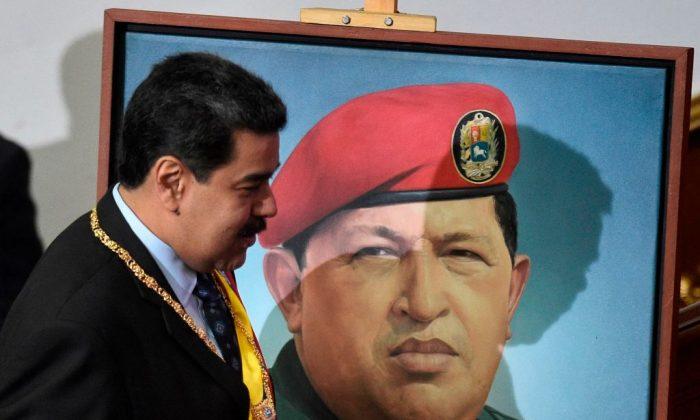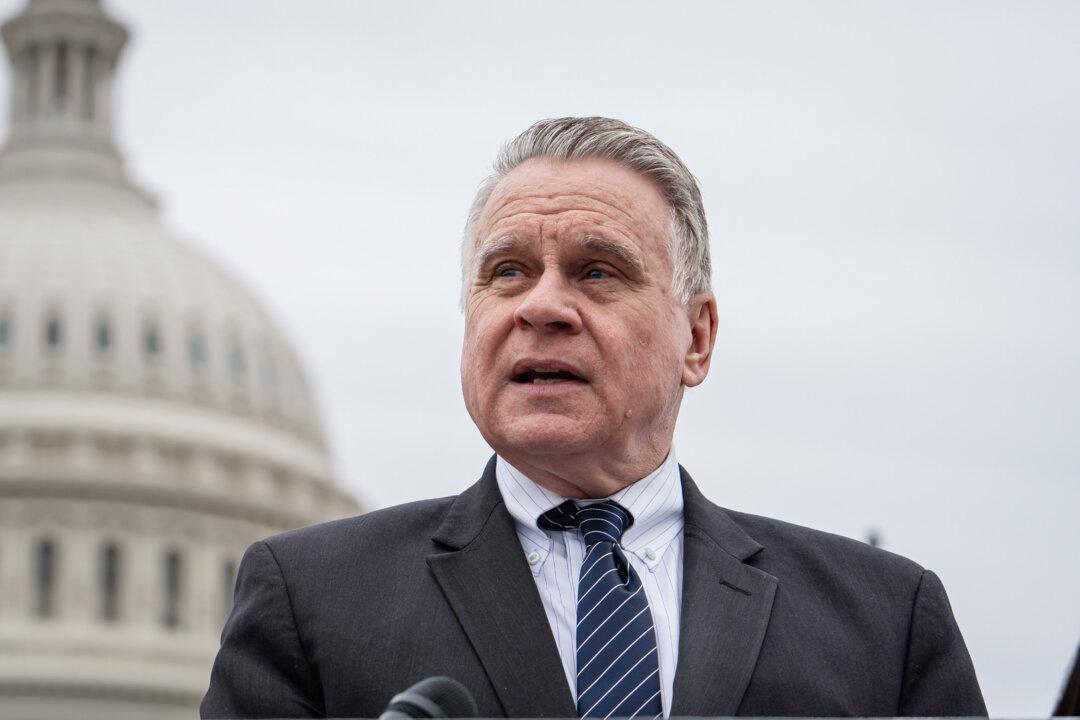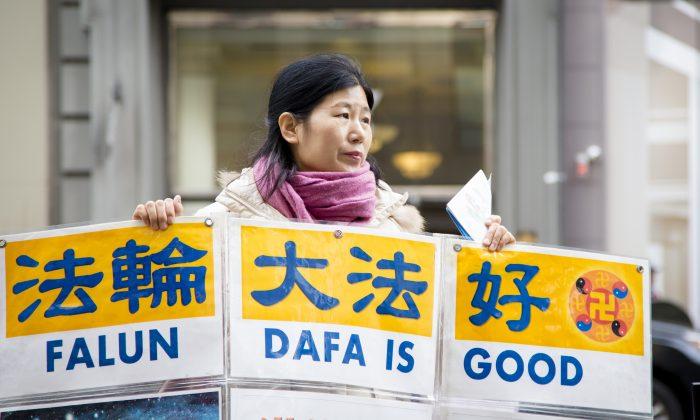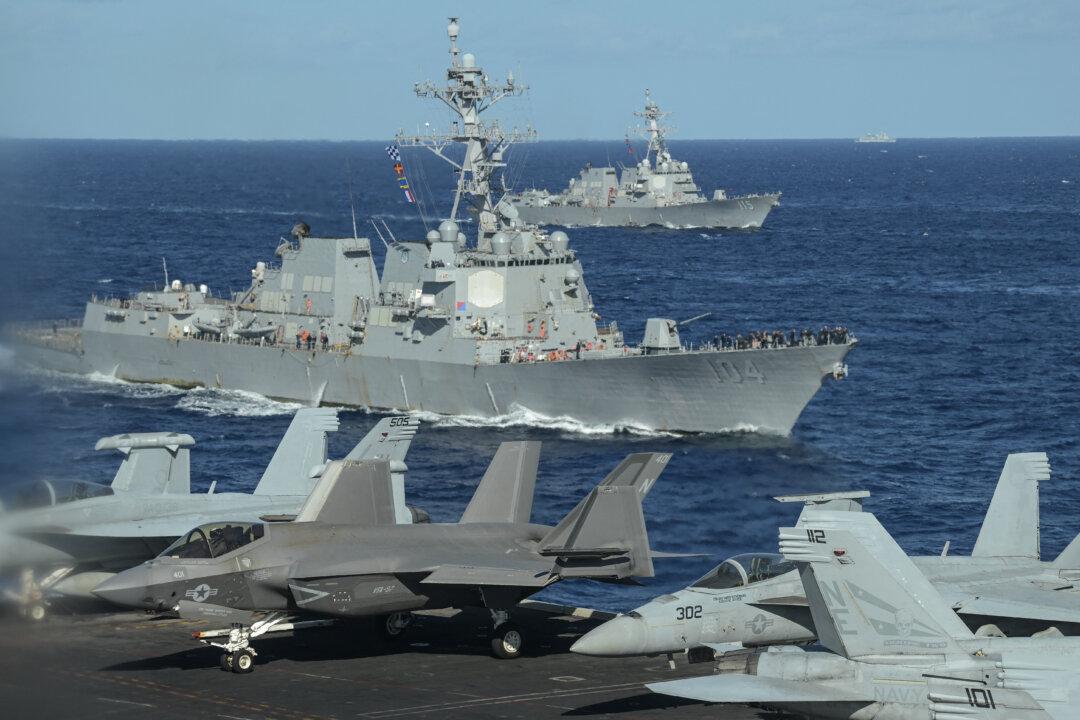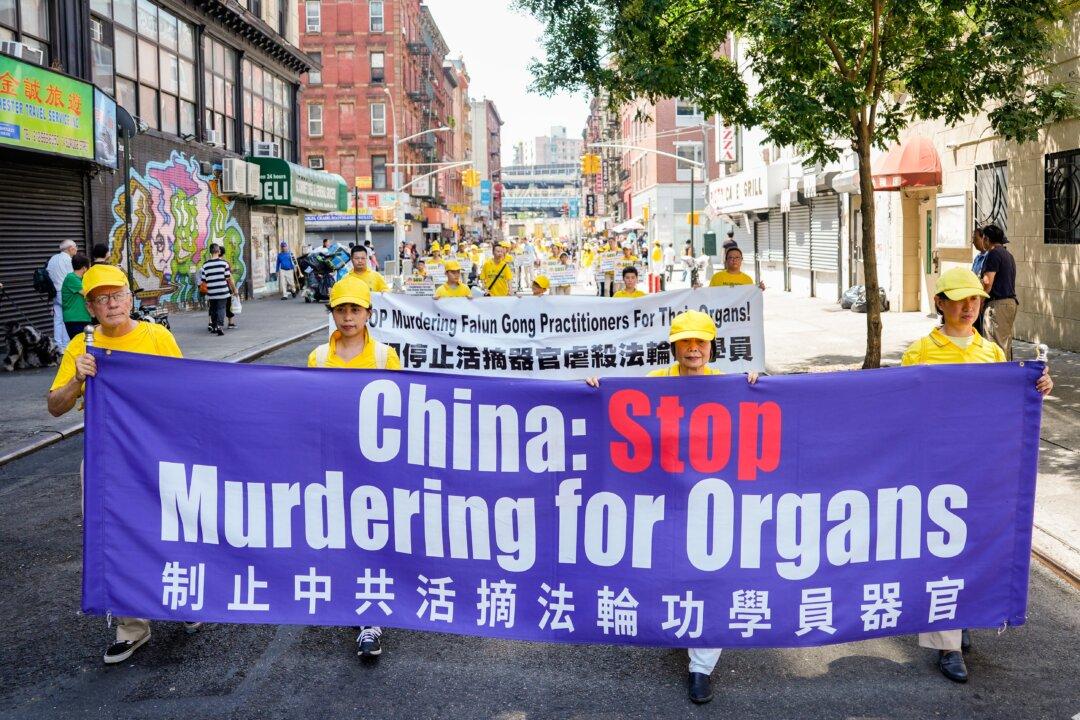Amid the political turmoil in Venezuela, Beijing has continually voiced support for embattled Venezuelan dictator Nicolás Maduro, who has claimed legitimacy as the country’s president despite widespread criticism.
On Jan. 23, Juan Guaidó, leader of Venezuela’s opposition-controlled National Assembly, declared himself acting president, citing rules in the country’s constitution that allows him to be appointed. Since then, many countries have announced their support for Guaidó, including Argentina, Brazil, Canada, and the United States, while Britain, Germany, France, and Spain all said they would recognize Guaidó unless fresh elections were announced within days.
Venezuela is in a socioeconomic crisis marked by food shortages and hyperinflation after two decades of socialist policies. The Andean country is now reportedly sitting on about $150 billion of debt, of which roughly $20 billion is owed to China, according to Reuters.
China, meanwhile, voiced unwavering support for Maduro after Guaidó’s declaration.
Maduro, who has refused to stand down, quickly retaliated against the United States’ support for Guaidó by severing diplomatic ties. In response, Washington announced it would conduct diplomatic relations with Caracas through the government under Guaidó.
During a daily press briefing on Jan. 24, China’s Foreign Ministry spokesperson Hua Chunying said, “China supports the efforts made by the Venezuelan government to uphold national sovereignty, independence, and stability,” adding that Beijing opposes any foreign interference in the Andean country.
While Hua didn’t name a specific country, China’s hawkish state-run newspaper Global Times published an editorial Jan. 24 stating that the quick diplomatic recognition of Guaidó was a sign of Washington’s “strong desire to interfere in Venezuela’s internal affairs.”
In a Fox News interview on Jan. 25, Sen. Marco Rubio (R-Fla.) explained why he thought China expressed such displeasure of the U.S. recognition of Guaidó: “Venezuela owes China a bunch of money. They just want to get paid.”
Close Ties with China
China has lent more than $50 billion to Venezuela through oil-for-loan agreements over the past decade, according to Reuters.
Maduro, who rose from vice president to assume the office of president after Hugo Chávez’s death in 2013 before winning a special election, was sworn in for his second term Jan. 10. But the 2018 presidential election was viewed as fraudulent by the opposition-controlled congress and the international community.
Five days after Maduro was sworn in, Venezuela’s congress formally declared him a “usurper,” and that all actions issued by his executive power would be nullified, according to Venezuela’s English-language news site Caracas Chronicle.
But China has backed Maduro’s regime consistently.
Most recently, China’s ambassador to Venezuela, Li Baorong, reaffirmed China’s commitment to Maduro, saying that the two countries will “strengthen strategic cooperation,” while giving a speech at a Chinese New Year reception hosted by the Chinese embassy at the Gran Meliá Caracas hotel on Jan. 26, according to the embassy’s website.
Many Venezuelan officials attended the reception, including Delcy Rodríguez, Venezuela’s vice president under Maduro since June 2018; Simón Zerpa Delgado, the minister of economy and finance; and Major Gen. Pascualino Angiolillo Fernández, secretary general of the National Defense Council.
Rodríguez also gave a speech, which was nationally televised on Venezuela’s state-run broadcaster VTV, thanking China for its support. She said the special relationship between Venezuela and China should be commemorated, as this year marks the 45th anniversary since the two countries established diplomatic ties—adding that bilateral relations have “flourished since the arrival of Hugo Chávez.”
As a sign of strong ties with China, Rodríguez stated, “Venezuela has all the oil China needs,” and applauded China’s One Belt, One Road initiative, under which Maduro inked 28 agreements while on a visit to China in September last year.
According to a September 2018 article by Venezuelan broadcaster Telesur, these agreements include cooperation between China’s state-run China National Oil and Gas Exploration and Development Corporation (CNODC) and Venezuela’s state-owned oil company PDVSA to explore and extract natural gas. Another agreement gave China’s state-owned mining company Yankuang Group rights to explore and extract gold in Venezuela.
But several Spanish-language daily newspapers have since reported that Venezuela’s congress has declared all agreements signed by Maduro and not approved by the parliament to be “null and void.”
China Development Bank
China’s investments in Venezuela have enabled rampant corruption under Maduro’s socialist regime, according to experts. In April 2018, U.S.-based think tank Center for Strategic and International Studies warned of the dangers of Chinese investment in a report.
“China’s influence in Latin America is neither transparent nor market-oriented,” stated the report, with some of the loans and agreements illegitimate. “This lack of transparency adds yet another layer to the entrenched corruption of the Maduro regime.”
Chinese investment in Venezuela comes through either outbound direct investment (ODI) or lending through Chinese policy banks, the report pointed out, but in both cases, they lack “even the most basic norm of transparency.” With ODI, Chinese money is often routed to Hong Kong to unknown destinations, while Chinese banks often fail to report detailed information on lending by country.
“China has poured funding into Venezuela at the cost of Venezuela’s citizens and long-term success,” the report concluded.
China began investing in Venezuela in 2001, after then-Chinese Communist Party (CCP) leader Jiang Zemin met Chávez in Caracas. The two sides inked eight bilateral agreements on energy, culture, technology, and mining, according to BBC.
Since then, China Development Bank (CDB), a state-run policy bank, was one of the main channels for Beijing to funnel money to Venezuela. According to an August 2017 article by Global Times, CDB alone offered about $37 billion in loans to Venezuela from 2008 to 2015—making the bank Venezuela’s biggest creditor at the time.
It isn’t known precisely how much funding CDB provided to Venezuela in the years prior to 2008. However, according to China’s Ministry of Commerce, in 2006, CDB provided a loan of about $1 billion for a public housing project in Venezuela, which was to be built by China’s state-owned CITIC Construction. In return, China National United Oil Corp., a subsidiary of China’s state-run oil company CNPC, would receive 200,000 barrels of oils per day.
Notably, Chen Yuan, son of the former CCP elder Chen Yun, was chairman of the bank from 1998 to 2008. Later, he was appointed president of CDB from 2008 until April 2013.
Radio Free Asia, in a column published in April 2013, pointed out that Jiang had enabled Chen Yuan to secure his position at CDB as a way of returning a political favor.
Following the Chinese regime’s crackdown on student protesters at Tiananmen Square in 1989, then-CCP secretary general Zhao Ziyang was ousted. Chen Yun suggested to then-paramount leader Deng Xiaoping that Jiang should take over the position of secretary general.
After Jiang was named secretary general on June 24, 1989, he became the Party leader.
